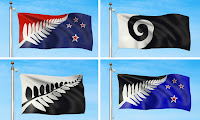An interesting viewpoint comes from Sabeto in the western side of Fiji, a writer not happy the way that the Bauan language become the Number One Fijian language. A good article from the Fiji Times today.
As we have all learned in our homes and schools, the Vunivalu of Bau sold our country to the British in 1874, setting in motion a century and a half of alternating progress and chaos. What was left out of our history books and dinnertime conversations, though, was that this upheaval has led to the slow death of many of our dialects.
Today, the State-endorsed vosavakaViti, or iTaukei language, is a form of continued colonisation of our many dialects by Bauan, and it is responsible for the deaths of dozens of languages in Fiji.
By using the term "vosavakaViti when in fact referring only to standard, modernised Bauan, we ignore and deliberately cover up the linguistic diversity of indigenous Fijians.
How many speakers of vosavakaViti understand me when I say that qi rarawa du valevu ina lequ dania na kea sa vamatenia lequ tatanivanua na tatavaBau? Or are you going to tell me that is only a "dialect," and is not vosavakaViti? Because I am sad that Bauan is killing my language.
Let me tell you how a language colonises a neighbouring one.
It starts with the colonisers themselves, the British.
First, they choose a local group that has already converted to their religion and seems quite compliant to British interests — ie the Bauans, under Cakobau.
Then, though the group does not have military control over the area they claim to rule (Colo and Nadi regions), for example, remained firmly outside of Bauan control for several decades after cession), they give the local group weapons and formal recognition by the British government.
Eventually, the resistance to the Bauan government broke — and as a reward, the British ensure the legacy of Bauan domination by institutionalising their dialect as the "national dialect", despite the fact almost no one spoke it outside of Lomaiviti prior to cession.
And today, 140 years later, the term vosavakaViti is commonly understood as meaning the Bauan dialect — as if they are the only ones who speak Fijian.
The arrogance of it amazes me, much like the crowning of Cakobau as Tui Viti.
Even here in Nadi region, we have the annual Bula Festival. Bula is a Bauan word! How would kai Suva feel if we demanded they change the Hibiscus Festival to the Kulu Festival?
From the moment an iTaukei child is born, he or she faces a barrage of languages. At home, children learn one or two Fijian dialects depending on where their parents are from. And when that child goes to school, he or she will be told these languages are not recognised as vosavakaViti, as Fijian, by the school. Only standard, modern Bauan is vosavakaViti.
This iTaukei child carries this new, invasive language home with him or her, mixing their school-taught Bauan in with their language at home. Thus, rural iTaukei children speak three languages. They speak their local language in their village, are instructed by their teachers in Bauan, and finally, they must learn English in order to comprehend the Fijian school curriculum.
Languages and dialects
Even the fact that we use the term "dialect", and not "language" to describe our oral traditions is demeaning.
When compared using the Swadesh list, a linguistic tool that uses basic, cross-cultural phenomenon to determine the differences between languages, tatavaSabeto and vosavakaBau have less than 60 per cent in common, less than many other language pairs.
Take Spanish and Portuguese, which originate from the same Iberian Peninsula in Europe. Spanish-speakers and Portuguese-speakers can communicate using their own languages and be understood by each other yet both are recognised in their own rights as full languages by everyone in the world, not as dialects of one another.
The same cannot be said of tatavaSabeto and vosavakaBau, which are not mutually comprehensible, and are instead placed inside a false hierarchy, whereby TatavaSabeto is merely a "dialect" of the national Bauan language.
Every day, non-Bauan dialects in Fiji are being neglected in favour of Bauan in homes, offices and schools, silently endorsed by every government since independence.
Every day, as public services strengthen and interregional marriages increase, Bauan and English gain stronger footholds in households across Fiji, pushing out the languages of our ancestors.
And Fiji's beautiful rainbow of spoken word, from tatavaSabeto to vosavaLau, slowly melt together into gray, English-speckled vosavakaBau.
We cannot let this happen. We must save our languages, before it is too late.
* Pauliasi Don Natabe is studying geography part-time at USP. He lives in Sabeto Village and is the assistant director of Sabeto Kidz Club 2015. The views expressed are his and not of this newspaper,



 + Enlarge this image
+ Enlarge this image
